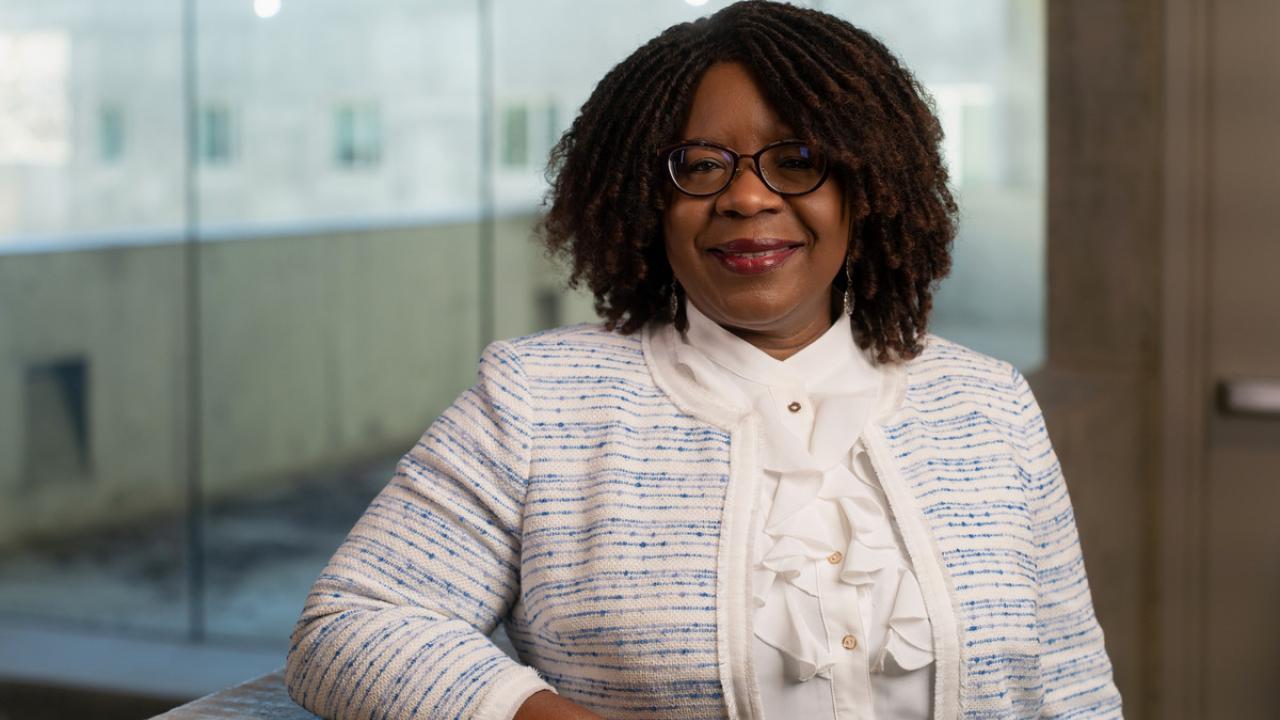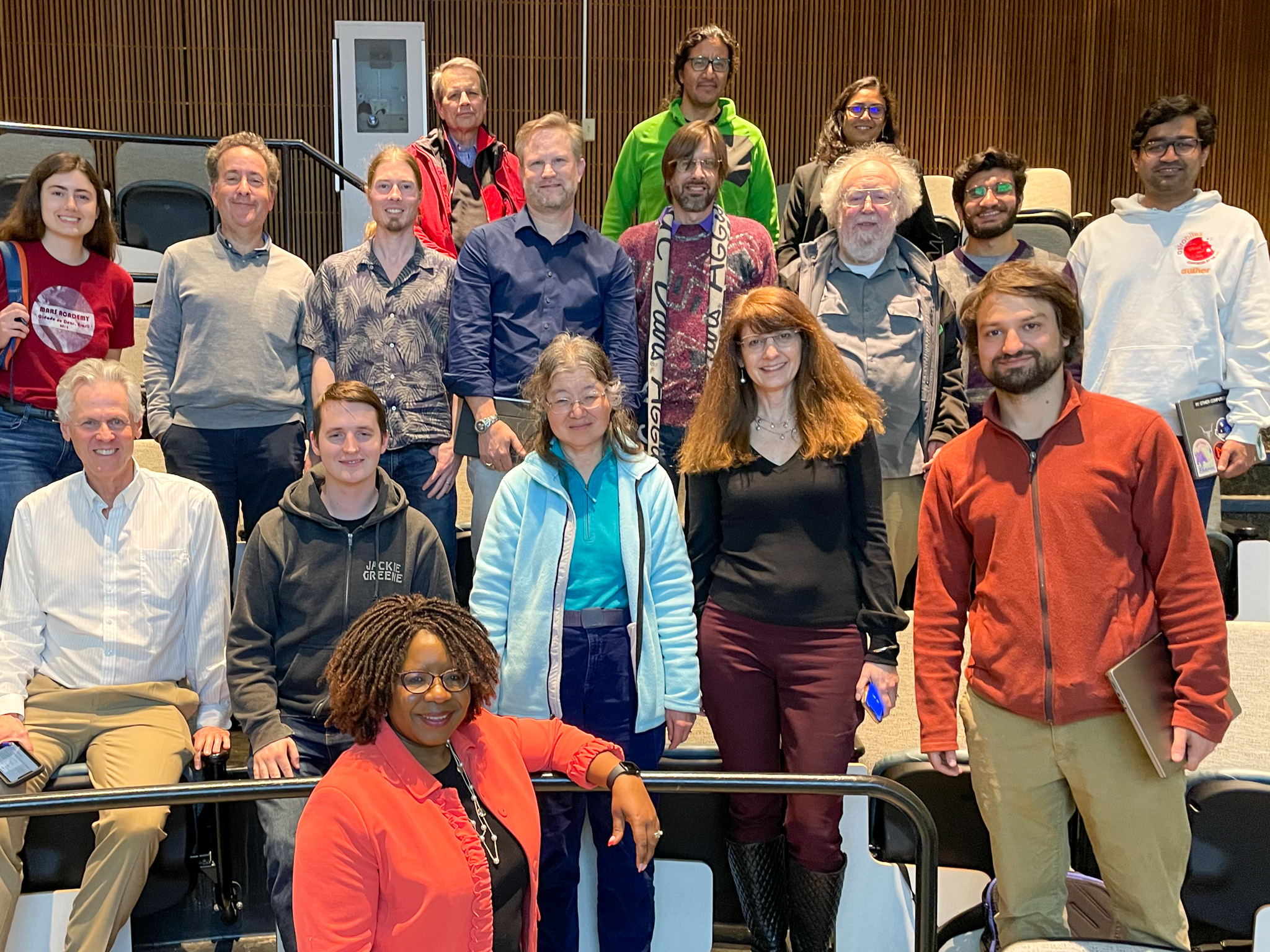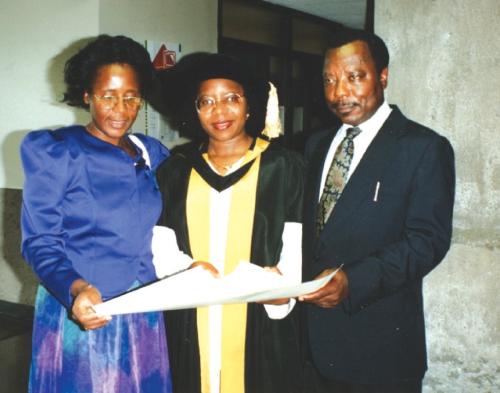
Estella Atekwana remembers a time when academia didn’t feel all that inviting. She was a second-year student at Howard University, an ocean away from her home country of Cameroon. At the behest of her parents, Atekwana was intent on studying medicine and had just enrolled in an organic chemistry course.
“The instructor said that many of us in the class were ‘medical school wannabes’ and promised to weed out the students who were not cut out for medical school,” recalled Atekwana. “I thought the professor’s role was to support us in our learning, yet here he was instilling fear, presenting roadblocks in pursuit of our dreams.”
Atekwana wasn’t interested in learning from a professor who didn’t want to help their students. She dropped the course.
That decision, when Atekwana was still a first-generation college student, led to a ripple effect that enabled her to explore her passion for geology, launch a career as a pioneer in the field of biogeophysics and eventually segue into a leadership role in academia.
Now as dean of the College of Letters and Science at UC Davis, the largest college on campus that more than 14,000 undergraduate students call home, Atekwana wants to ensure that no UC Davis student ever feels unsupported. She envisions the college as a bridge that helps students make their dreams a reality while being a powerhouse for interdisciplinary research.
“The future of a nation is in our classrooms and we have the power to transform those lives,” said Atekwana.
Fostering student and faculty success
Ensuring a student’s academic success is a multi-pronged endeavor. It requires meeting students where they’re at, both academically and emotionally, thereby creating an environment conducive to intellectual and personal exploration.
“I truly believe that as teachers, we really need to meet students where they are,” she said. “A student comes into the classroom. You don’t know anything about them. All you see is that person. But that person is not just the individual that you see. A whole lot is going on behind the scenes.”
Since joining UC Davis in summer 2021, Atekwana has been committed to student success. She and her leadership team established the college’s first Peer Mentor Program in fall 2022. The program matches first-year, transfer and first-generation students with current upperclassmen in the college. Since the program’s launch, more than 600 students have participated in it.
“The goal of the program is to help better support our students, to help increase their sense of belonging, thereby enhancing retention and leading them to resources that are available around campus,” Atekwana said.
When Atekwana arrived on campus, one of the first things she realized was the college needed more faculty members to accomplish its mission. Thanks to this realization, the college will welcome roughly 40 new faculty members for the 2023-2024 academic year.
“We’re probably bringing in the largest cohort that we’ve recruited in the last several years,” said Atekwana, noting that their expertise spans the arts, humanities, cultural studies, social sciences, and the mathematical and physical sciences. “It also promises to be the most diverse class of our faculty that we’ve recruited. I can’t wait to see what they do here at UC Davis and how we can support them so that they can be successful.”
To ensure new faculty transition to campus smoothly, Atekwana and her leadership team are launching a faculty mentorship program this fall.

An interdisciplinary approach to problem-solving
With her eyes set on the college’s future, Atekwana is adamant that solving the world’s most pressing problems requires interdisciplinary solutions. A recent college initiative exemplifies this belief.
In early 2023, the college, in partnership with the UC Davis School of Medicine and support from the provost’s office and office of the vice chancellor for research, invested $5 million to launch the UC Davis Institute for Psychedelics and Neurotherapeutics.
The center aims to harness the neurotherapeutic benefits of psychedelics and translate that knowledge into safe and effective treatments for diseases like post-traumatic stress disorder, depression, Alzheimer’s disease and Parkinson’s disease, among others that originate in the brain. The institute unites faculty minds from across schools and disciplines.
“We’re reaching across the causeway to build those bridges between our Sacramento campus and our Davis campus,” Atekwana said. “Solving these problems really requires an interdisciplinary perspective. This is an opportunity for us to shine and use our expertise to address a serious societal challenge that affects so many.”
Asked about what advice she’d give to early career faculty and students, Atekwana encourages them to explore their curiosity and not discount the value of serendipity.
“You really need to remain open-minded,” she said. “That flexibility is key.”
Embracing serendipity
Serendipity and flexibility were key to Atekwana forging a path in the geosciences.

After graduating with a doctorate in geophysics from Dalhousie University in Nova Scotia, Canada, Atekwana accepted a faculty position in the geology department at Western Michigan University, becoming the first woman and first Black faculty member in the department. She soon discovered an interest in near-surface geophysics, applying her skillset in imaging to environmental and engineering problems.
At the time, there were discrepancies between the geophysical signatures that resulted from controlled oil spill experiments in the lab and geophysical signatures from oil spills in the field.
“Textbooks told us that we ought to be able to see a particular signature,” Atekwana said. “What we were observing in the field was very different from what all our models told us. We were being informed by the physics of the system; we never thought about the biology components.”
Microbial processes, it turned out, were affecting the geophysical signatures picked up in field spills, leading Atekwana and her colleagues to develop a more accurate method to monitor contamination. Atekwana’s research in this area led to innovations that ushered in better pollution monitoring for drinking water.
“We made that discovery that in fact, microorganisms can transform the physical properties of rocks, which was pretty amazing,” said Atekwana, noting the discovery would not have been possible without an interdisciplinary approach.
Providing faculty with opportunity
According to Atekwana, interdisciplinary approaches to research are key to developing innovative methods that lead to breakthrough discoveries. Her overall goal as the college’s leader is to make it easier for College of Letters and Science faculty to engage in such research.
“Our biggest priority right now is to make sure that I provide the resources that our faculty need,” she said.
To encourage faculty to collaborate across disciplines, the college is launching the L&S Unites initiative in fall 2023. The program provides researchers with up to $150,000 in funding for projects with faculty representation from at least two of the college’s three historic divisions.
“That, to me, is a really valuable proposition,” Atekwana said. “The whole goal is to catalyze these interdisciplinary types of collaborations. I can’t wait to see what the faculty are going to propose.”
“There is a lot to be excited about for our college,” she added. “The breadth and the depth of the different disciplines in the college and the incredible people that we have — the faculty — are truly amazing. And then I think about our students, how incredibly bright they are and just full of so much hope for the future. These are the things that get me excited about coming to work every day.”
Learn more about Dean Estella Atekwana in this autobiographical note published by the Annual Review of Earth and Planetary Sciences.
— Greg Watry, content strategist & writer for the College of Letters and Science at UC Davis
